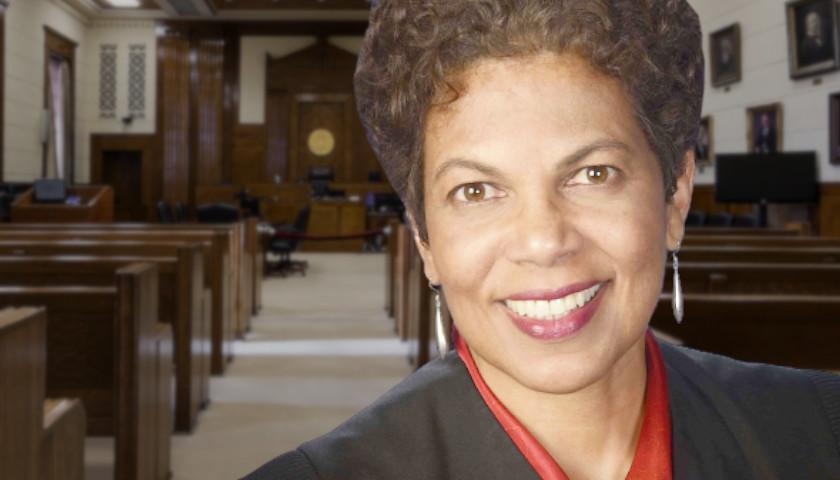Many of those who are applauding the U.S. Supreme Court’s decision Thursday that struck down affirmative action are also warning that universities that have been steeped for decades in “equity” and “diversity” ideology are not likely to go quietly.
“My elation regarding the opinion’s vindication of the rule of law and rejection of racial discrimination is tempered somewhat by the fact that the Left began preparing for this result a couple of years ago by abandoning objective admissions measures such as the SAT, etc., Peter Kirsanow, a member of the U.S. Commission on Civil Rights, said in comments to The Star News Network following the Court’s decision in Students for Fair Admissions, Inc. v. President and Fellows of Harvard College.
“They remain intent on discriminating on the basis of race and will continue to search for more subtle means to do so,” Kirsanow warned. “Nonetheless, this decision makes it a heckuva lot harder.”
Fellows with the Manhattan Institute (MI) also observed the Court’s decision is long overdue, with many universities having anticipated the end of affirmative action with “workarounds” already in place.
Ilya Shapiro, a senior fellow and director of constitutional studies at MI, remarked, “It’s unbelievable that it took until 2023 to do so, but sometimes the wheels of justice are slow.”
“Sometimes it takes a while for the high court to coalesce around a position that long ago became startlingly obvious to anyone not steeped in judicial artifice or postmodern identity politics—which includes a majority of every American demographic group,” he stated, adding his own warnings:
But this is only the end of the beginning of the fight for equality in educational opportunity. Higher-education grandees have long interpreted the Court’s cautious approval of the temporary use of race (as one of many factors) as a green light for a permanent diversity-industrial complex. They will not go quickly into the colorblind night of merit-based admissions, but will fight for workarounds to maintain their system of racial spoils. So, there’ll be more litigation, but it’s clear that the Supreme Court has no more constitutional patience for admissions officers’ social engineering or university administrators’ DEI posturing.
Robert VerBruggen, also an MI fellow, asserted that while the Court’s decision “effectively bans affirmative action as it’s known and practiced today,” the “ball is now in the universities’ court.”
“As I laid out in a recent report, when colleges’ use of race is restricted, they are likely to turn to other methods of hitting their demographic goals,” he observed, “and while these ‘race-neutral alternatives’ have many points in their favor, they also can create academic mismatch between students admitted through preferences and their peers, and in some cases they might cross the line into illegal racial discrimination by proxy.”
“There is also a concern that many schools will drop standardized testing (or maintain policies adopted during the pandemic) as part of this process,” VerBruggen warned. “The law does, in fact, generally ban racial discrimination by U.S. colleges. But there’s a difference between stating the law and remaking university admissions – and today’s development is only the first step.”
In an interview on Fox News, Virginia Lt. Gov. Winsome Sears (R) lambasted the narrative of affirmative action policies, namely, that blacks need a “political savior” because they are perennially “victims.”
Renu Mukherjee, a Paulson Policy Analyst at MI, acknowledged the decades during which colleges and universities have been allowed a “blank check … to use race and ethnicity to confer benefits on applicants from certain racial and ethnic groups, while penalizing applicants from others.”
“With that said, advocates of colorblindness should be aware that the effort to combat race-based discrimination in higher education is only beginning,” Mukherjee warned. “Colleges and universities will do everything in their power – from eliminating standardized testing requirements to seeking ‘race-neutral alternatives’ that are, in reality, racial proxies – to continue racially balancing their student body.”
With those warnings in mind, former Trump administration senior advisor Stephen Miller, now president of America First Legal (AFL), announced his firm has sent warning letters to 200 law schools telling them they must obey the Supreme Court’s ruling that declares racial discrimination and affirmative action unlawful and unconstitutional.
A press statement explained AFL’s warning letters:
Law schools across the United States have been discriminating against students based on race for decades—admitting some students based on their race and denying admission to others with better qualifications just because of how they were born. They have reserved faculty positions and refused to consider exceptionally qualified candidates for interviews because they came from the wrong race or sex. They have allowed similar practices in student-run law reviews, even allowing students to accept articles based on the race or sex of the author.
“For too long, rather than being beacons of hope and serving as models of equal treatment under the law, law schools have used discriminatory practices that should offend every American,” said Gene Hamilton, AFL vice president and general counsel.
“These practices do not just infect and affect legal academia—they then inculcate generations of lawyers who fail to appreciate the meaning of true equality, fail to advance the rule of law, and who fail to speak truth to power with their clients,” Hamilton added. “We are ready to defend the rights of any American harmed by these unlawful practices.”
– – –
Susan Berry, PhD is national education editor at The Star News Network. Email tips to [email protected]
Photo “Manhattan Institute for Policy Research” by Manhattan Institute for Policy Research.
Photo “Business Meeting” by Christina @ wocintechchat.com.




